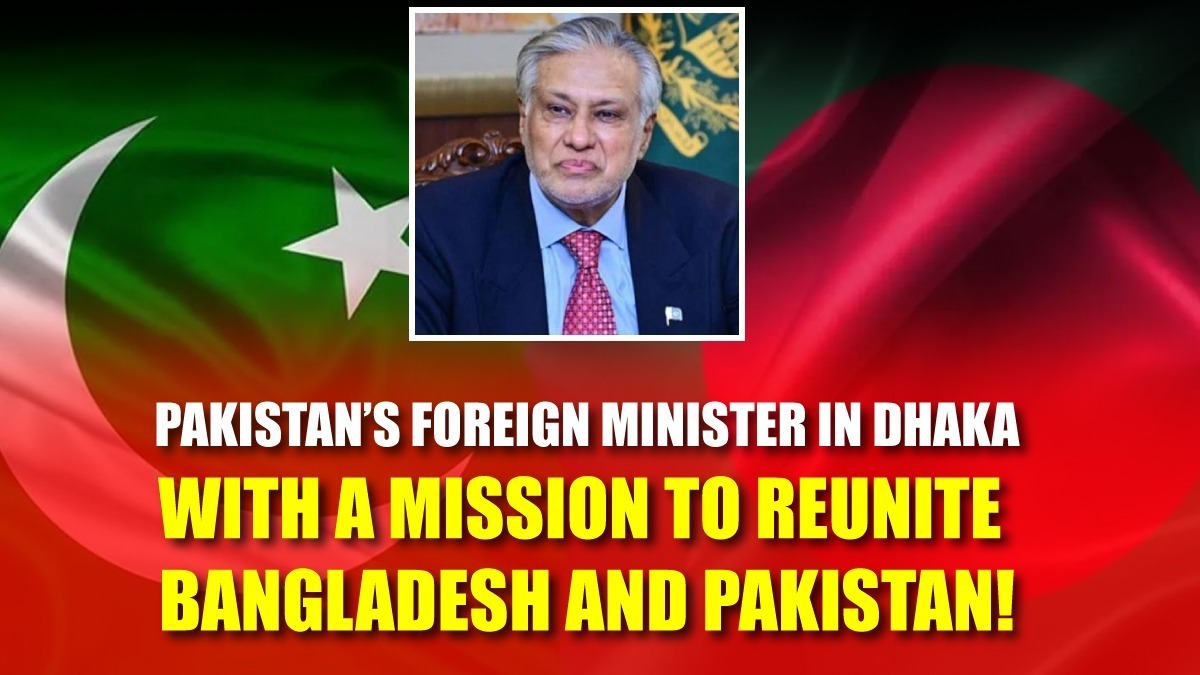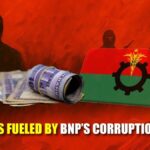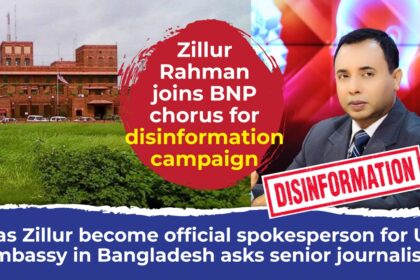Pakistan’s Deputy Prime Minister and Foreign Minister Ishaq Dar has arrived in Dhaka on a two-day visit. This is the first visit to Bangladesh by a Pakistani foreign minister in 13 years. Sources claim Ishaq Dar has come to Dhaka with the mission of bringing Bangladesh and Pakistan back together.
During this trip, he is expected to meet BNP Chairperson Begum Khaleda Zia and Jamaat-e-Islami leaders. Sources suggest his visit is tied to Pakistan’s larger mission: destabilizing India and drawing Bangladesh back into Pakistan’s orbit. Analysts point to the infamous 10-truck arms haul case as proof. On April 1, 2004, Bangladesh intercepted its largest ever consignment of arms and ammunition at the Chittagong Urea Fertilizer jetty. The massive cache, shipped in by trawlers, was allegedly linked to attempts at destabilizing India during BNP’s rule—straining ties between New Delhi and Dhaka at the time.
Ahead of Dar’s visit, Pakistani media and online outlets have openly called for Bangladesh to be “reintegrated” with Pakistan, portraying the Liberation War as an Indian conspiracy and denying Pakistani war crimes.
Meanwhile, Jamaat leaders are referring to Bangladesh as “Pakistan” at rallies, and Shibir has even sent representatives to Pakistan. On Dhaka University’s campus, Shibir held an exhibition attempting to whitewash war criminals—sparking outrage.
The interim government of Bangladesh has remained silent in the face of these provocations. Critics say this makes the supposed demand for an apology from Pakistan little more than a farce.
Recently, Jamaat was allowed to hold a rally at Suhrawardy Udyan for the first time, which stirred major controversy. The sudden departure of Pakistan’s outgoing ambassador, amid personal scandals, has also raised eyebrows.
Overall, critics argue Pakistan, Jamaat, and Shibir are again trying to expand their influence in Bangladesh, and the government’s silence is feeding public concern.
A Conspiracy to Make Bangladesh “Pakistan” Again
Fifty-four years after independence, multiple sources warn of a dangerous conspiracy to once again turn Bangladesh into Pakistan. Diplomatic and military contacts, foreign funding, and covert political-intelligence activity by Islamabad have triggered alarm.
Pakistani ministers are now visiting Dhaka in quick succession. Commerce Minister Jam Kamal Khan is due on August 21 for a four-day trip, followed by Deputy Prime Minister and Foreign Minister Ishaq Dar on August 23. Last month, Interior Minister Syed Mohsin Raza Naqvi visited Dhaka, claiming Pakistan and Bangladesh would “work together against terrorism”—a statement widely ridiculed, given Pakistan’s history with terror groups. Earlier in April, Pakistan’s Foreign Secretary Aamna Baloch also came to Dhaka to push for “reviving relations.”
Aggressive Messaging from Pakistan
Pakistani news outlet The Catchline recently published a column branding Bangladesh’s independence an Indian conspiracy, declaring: “It is time to restore East Pakistan to its rightful state.” The author even called for reinstating former Bangladeshi military officer Abdullahil Amaan Azmi as national security adviser—evidence that sections of Pakistan still view Bangladesh as lost territory.
Suspicious Military Visits
In June, three Pakistani brigadiers visited Dhaka and went directly to the Ramu Cantonment in Cox’s Bazar, headquarters of the 10th Infantry Division. A retired Bangladeshi major general remarked: “They were clearly on a covert mission—why else would they suddenly visit such a sensitive base?”
[Pakistan’s Foreign Minister in Dhaka with a Mission to Reunite Bangladesh and Pakistan!]
Ramu is a known hub for supplying and liaising with the Arakan Army, leading many to see the trip as part of a hidden military plan rather than routine diplomacy.
NCP and Militant Networks
Internal sources say a political party called NCP is secretly operating as a front for militant organizations. Investigations suggest Pakistani intelligence is channeling funds to NCP through Qatar- and Turkey-based Islamic banks. In the last three months alone, $12.7 million reportedly flowed into NCP shell accounts in Karachi via Ankara.
Leaked documents suggest strategic reshuffles inside Bangladeshi security forces, placing officers sympathetic to extremist causes in key positions. Broader geopolitics also plays a role—especially China-India rivalry. Some Western powers, once staunchly anti-terror, are now quietly supporting the Islamabad–Doha–Istanbul axis.
Even U.S.–Pakistan ties are warming again. Pakistan’s Army Chief Asim Munir recently attended a White House lunch with U.S. President Donald Trump.
Analysts’ Warning
Analysts believe the flurry of Pakistani visits and propaganda is not just diplomacy but part of a deliberate “reverse engineering of history”—an effort to drag Bangladesh back under Pakistan’s influence.
The gravest risk for Bangladesh is the reported infiltration of extremist-sympathizing forces inside its own security apparatus. On the global stage, shifting geopolitics—China-India rivalry and muted Western responses—only strengthens this conspiracy.





